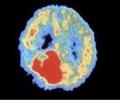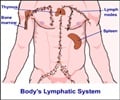Certain immune cells that could help explain why younger people are more susceptible to human form of mad cow disease or variant CJD have been identified
Certain immune cells that could help explain why younger people are more susceptible to human form of mad cow disease or variant CJD have been identified by scientists from The Roslin Institute of the University of Edinburgh.
They have specific cells within the immune system that attract corrupted proteins - known as prions - linked to variant CJD and encourage them to multiply and spread.During the study, the looked at how these cells behaved in mice and found that the cells were impaired in older mice.
As a result, they were unable to trap and replicate the prions and the mice did not develop clinical disease.
Prions accumulate in lymphoid tissues - part of the body's immune system that include the spleen, lymph nodes and tonsils - before spreading to the central nervous system where they kill off brain cells and cause neurological disease.
"It has always been unclear why younger people were more susceptible to variant CJD and the assumption that they were more likely to eat cheap meat products is far too simplistic," said Neil Mabbott, of The Roslin Institute.
"Understanding what happens to these cells, which are important for the body's immune responses, could help us develop better ways of diagnosing variant CJD or even find ways of preventing prions from spreading to the brain. It could also help to create a vaccine," Mabbot added.
Advertisement
Source-ANI
RAS









